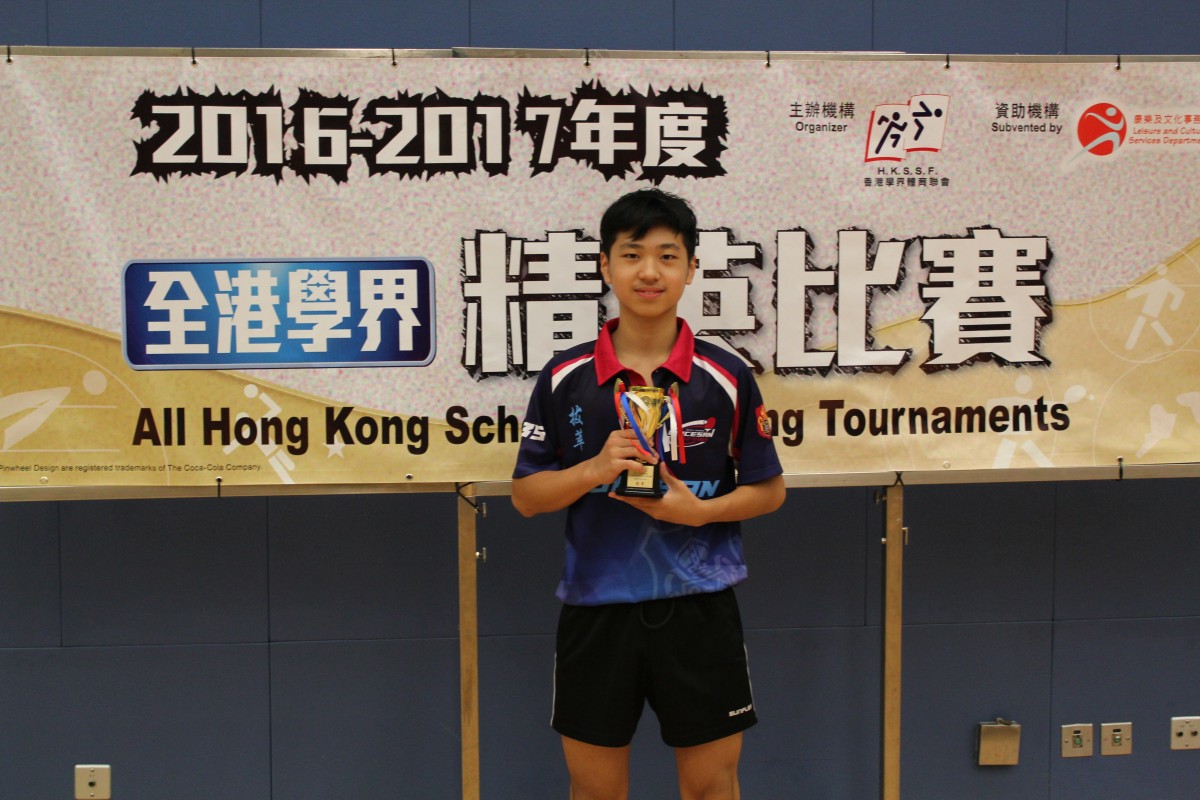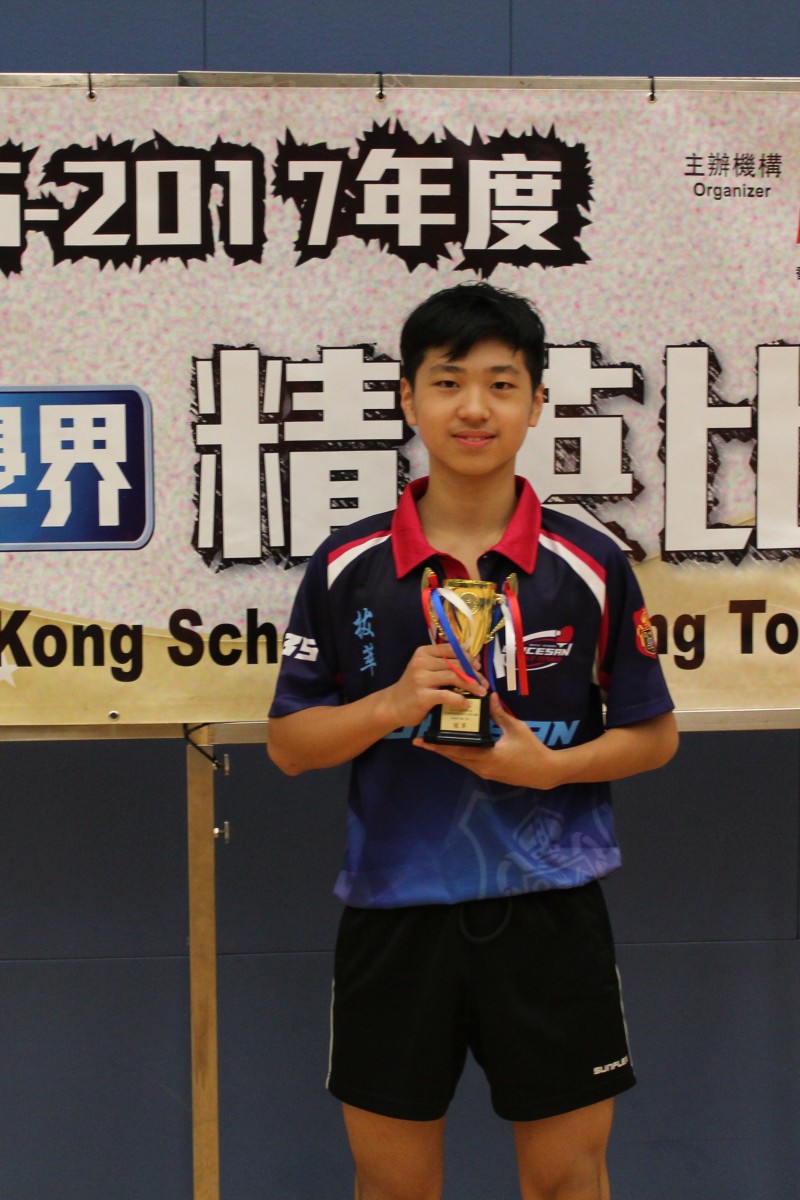 DBS elite tennis player Kelvin Lau won the All Hong Kong Schools Jing Ying boys’ championship in October.
DBS elite tennis player Kelvin Lau won the All Hong Kong Schools Jing Ying boys’ championship in October.To be victorious in table tennis you need more than a powerful serve and snappy spin. But while most athletes focus only on their paddle play, Diocesan Boys’ School’s elite table tennis player Kelvin Lau Chun-kit told Young Post that what goes on below the table can determine whether you win a match or not.
“Footwork plays a crucial role as table tennis is a very fast sport,” says the 14-year-old. “You need to be agile, attentive and speedy if you want to return or hit the ball aggressively. It’s never easy to anticipate where the ball will go, so you need to find ways to speed up your reaction times, strengthen your leg muscles, and improve your footwork.”
For Kelvin, that means lots of running and skipping, because these actions build stronger legs. “You need strong leg muscles to accelerate your footwork and improve reaction speed,” he says. “You need to move a lot during competitions, and tenacity and footwork are key to performing at a high level in every match.”
And playing such a fast, intense game can take a lot out of you. “My coach advises me not to play too fast if I cannot keep up with the pace,” says Kelvin. “So if I lose a set, I’ll think about what went wrong and then find my own rhythm again and adjust my game plan. For example, if my opponent is known for his backhand and receiving serves, I need to beef up my forehand attacks.”
Kelvin also spends a lot of time working on receiving serves. During his training sessions, he tries to return as many of his teammates’ shots as he can.
“Receiving seems to be very boring and mechanical, but the ball can come from any angle and at any speed,” he says. “I think this exercise speeds up my reaction time. It also teaches me how to return aggressive serves and put the ball in a position that limits my opponents’ opportunities to hit it back.”
A month ago, Kelvin and his teammates won a bronze medal in the cadets’ team event at the SET 2017 Thailand Junior & Cadet Open in Bangkok. And last October, he won the boys’ singles championship at the All Hong Kong Schools Jing Ying Table Tennis Tournament. Looking beyond these successes, Kelvin says his ultimate goal is to follow in the footsteps of Hong Kong’s table tennis star Wong Chun-ting, currently ranked No 7 in the world, and compete in the Olympic Games.
“Wong is the first local athlete to reach such a high ranking in the sport, as most of the top table tennis players come from China,” says Kelvin.
Preparing for his next tournament, Kelvin is working on his spin techniques, which help change the trajectory of the ball and make it harder to return. He’ll get a chance to put it to use when he heads to Ansan, South Korea, to take part in the cadets’ team event at the 2017 Asian Junior Championships from June 29 to July 4. It will be a chance to play with some up-and-coming stars of the game, and, as Kelvin says, to gain more experience and boost his competition confidence.
Bench notes:
Who are your favourite athletes?
Olympic gold medallist Zhang Jike, who is also one of the top Chinese table tennis players. I’m impressed by how he dominates with his aggressive spin shots and high speed play. These techniques are something I hope to emulate. My goal is to compete with him at the Olympics. He’s always fearless and confident, too. I need this positive attitude during competitions.
You can have the abilities of any animal for one competition. Which do you choose and why?
A cat. It gives the impression that it’s cold-hearted and not easy to understand its mind. I want to convey such impression during my competitions because my opponents won’t be able to read my thoughts.
Which fictional character would you choose as your teammate?
I would want Monkey Luffy from the Japanese manga series, One Piece. He’s famous for his rubber powers, which allow him to stretch his hands wherever he wants. With his magical power, he could return every ball and make us more competitive. Plus he’s always cheerful and energetic, so he could easily boost our confidence.
What drink would you never give up?
Bubble tea. Its tapioca balls are a perfect match for these sweet, milky, cold beverages.
